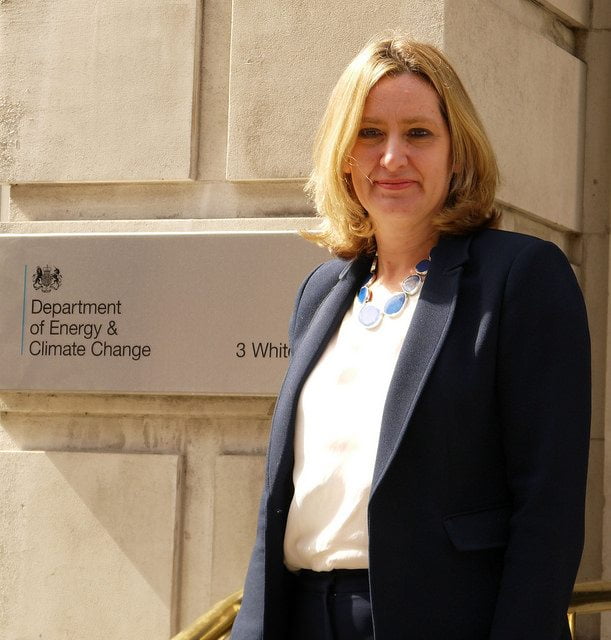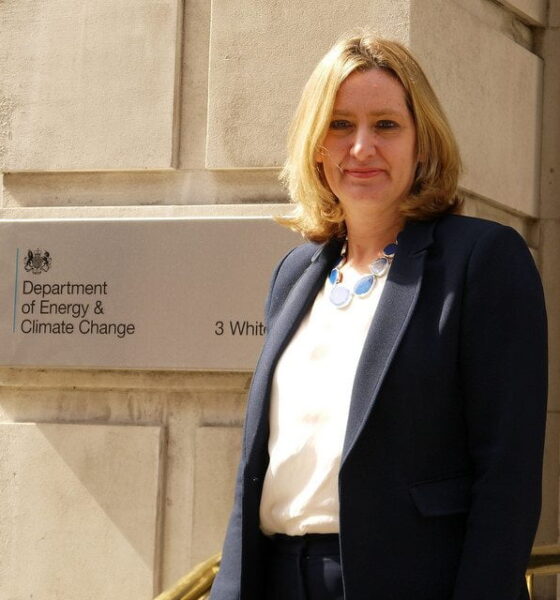

Economy
Changes To UK Renewables Subsidies: The Reaction
Renewable energy subsidies are paid for via energy bills through a number of schemes including the Feed-in Tariff scheme and Renewable Obligation scheme. Government decided on a set amount that would be paid to renewables by 2020 and earlier this year, the Office for Budget Responsibility projected that the amount would be exceeded, meaning bill payers would have to pay more.
The Government has taken action to reduce this overspend which includes the announcements being made today.
RenewableUK’s Chief Executive, Maria McCaffery, said: “It’s good that the Government has listened carefully to our concerns about their original proposals, and has modified some of them based on evidence we have supplied.
“The cuts in tariffs for small and medium-scale wind energy projects remain challenging, but they are not as severe as those originally proposed, meaning that a greater level of new capacity can come forward.
“However, we do have concerns about the use of deployment caps and the pace of degression rates, as these may limit the abilities of homeowners, farmers and small businesses to get involved in generating their own power, and secure ongoing cost reduction.
“We welcome the fact that the Government has heeded our requests on certain specific issues, such as re-introducing pre-accreditation for medium-scale wind projects – this means that developers will have confidence to invest and deliver cost savings. We are also pleased to see that our request for the introduction of a specific level of financial support for smaller turbines (50-100 kilowatts) has been accepted by Ministers.
“The next steps are crucial – we need Government and industry to work together to set out a clear vision for small-scale renewables, tackling red tape and stimulating innovation. This will deliver subsidy-free renewables and bring power to the people.
“The vast majority of the public wants us to make greater use of renewable energy in our homes, on our farms, and in our factories and offices. The Government has seen the benefits of this, and has gone some way towards heeding that message with the publication of today’s review”.
Renewable Energy Association (REA) CEO, Dr Nina Skorupska said: “From where we were after the initial consultation this is a real improvement and praise has to be given to DECC ministers in their willingness to listen and change.
“The past 6 months have been challenging for our members and the renewables industry, but we now have to draw a line and turn our attention to building a stable, robust and enduring industry leading to a business built without subsidy.
Paul Barwell, CEO of the Solar Trade Association said: “Government has partially listened. It’s not what we needed, but it’s better than the original proposals, and we will continue to push for a better deal for what will inevitably be a more consolidated industry with fewer companies.”
“However, in a world that has just committed to strengthened climate action in Paris and which sees solar as the future, the UK Government needs to get behind the British solar industry. Allocating only around 1% of its clean power budget to new solar is too little, particularly when solar is now so cost-effective. Poor ambition for solar risks missing out on not only our renewable energy targets in the UK, but on the world’s greatest economic opportunity too.”
“The industry will certainly try its hardest but we will be pressing Government to do much more to boost solar power.”
Commenting on today’s announcement, Friends of the Earth renewable energy campaigner Alasdair Cameron said: “Less than a week after the UK Government agreed in Paris to keep global temperatures well below two degrees, the government has shown its true colours – and they’re certainly not green.
“These huge, misguided cuts to UK solar are a massive blow for jobs and the economy, and further undermine the government’s already tarnished credibility on tackling climate change.
“Massive public opposition to the government’s original proposal may have forced ministers to modify their plans, but this is still terrible news for the for UK and its small-scale renewables industry.
“It’s outrageous that the government continues to hand out billions of pounds in subsidies every year to climate-wrecking fossil fuels, while trying to block the clean energy sources we urgently need to power our homes, hospitals and schools.
“The good news is that the global renewable revolution is unstoppable, and the technology is advancing far faster than government thinking. But that will be scant comfort to the thousands of people whose jobs are under threat as a result of this short-sighted decision.”
Graham Ayling, Head of Energy Saving Trust Foundation, said: “In September we asked for the government to maintain the FiT over the course of this parliament and develop a longer term plan to phase out support gradually. Therefore, we welcome this response in that it will provide greater stability to the sector and give investors and manufacturers more time to plan. However there is a fundamental lack of ambition reflected in this response.”
“Renewables are the future of energy generation, but there is an air of unreality between what was agreed in Paris last weekend and renewable energy policy today. The playing field is not level and these changes are wilfully drawing support away from renewable energy and towards nuclear and fossil fuels.”
Juliet Davenport OBE, chief executive of green energy company Good Energy, one of the largest Feed-in Tariff administrators in the UK, said: “The Feed-in Tariff has transformed how the UK generates electricity with more than 750,000 homes now generating their own power. It’s helped move us away from fossil fuels towards a cleaner, local, more democratic energy system.
“The new measures are a slight improvement on the original proposals but still mean that installing solar panels will no longer be attractive to British home-owners and the changes will also make it harder for housing associations and councils to use FIT to help those in fuel poverty.
“Just last week, world leaders agreed to ambitious plans to reduce carbon emissions. The UK government really needs to get behind new low carbon technology and take a global lead in seizing the new opportunities.”
Maria Connolly, partner and head of Energy & Renewables, TLT, said “It’s a small step in the right direction but uncertainty still prevails. Despite the positive news of reintroducing pre- accreditation; the government hasn’t gone far enough to support such a critical UK industry. The introduction of maximum deployment caps and a queuing system for those applicants who miss out on a cap are not helpful for a sector already shackled by red-tape.”
Scottish Renewables Senior Policy Manager Joss Blamire said: “Government has ignored clear evidence provided by industry that proposed cuts would curtail development and slashed hydro tariffs even further than proposed, in some cases by up to 45%.
“With the vast majority of hydro projects in Scotland, reductions at this level will now mean a recent renaissance in the sector north of the border will effectively come to an end.”
Mongoose CEO, Jan-Willem Bode, and Chairman/former Energy Secretary, Ed Davey: “By preparing us for the worst possible scenario and then climbing down slightly, it feels like they’re trying to make bad news look good.
“The industry needs to be subsidy free in the long term, and can do it in the medium term. Mongoose is big enough that it probably won’t affect us, but the announcement will have consequences both the smaller players in the community energy market and the renewables industry in general.
“The FIT has, in the government’s words, ‘been hugely successful in attracting investment’ for renewables – and it has played a vital part in helping to slash the cost per unit of solar energy.
“But the FIT needs to be more than just a way to get people to invest in tiny projects if we are to meet the commitments that we agreed to in Paris [at COP21], to maintain energy security and diversity.”


 Environment12 months ago
Environment12 months agoAre Polymer Banknotes: an Eco-Friendly Trend or a Groundswell?

 Features11 months ago
Features11 months agoEco-Friendly Cryptocurrencies: Sustainable Investment Choices

 Energy11 months ago
Energy11 months agoThe Growing Role of Solar Panels in Ireland’s Energy Future

 Energy12 months ago
Energy12 months agoHow Renewable Energy Can Help Combat Climate Change, According to Indra Energy




















